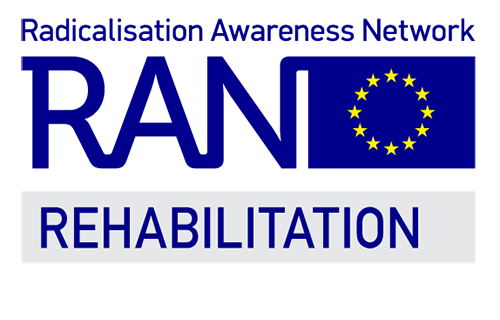
Tuesday 4 June & Wednesday 5 June 2024, Riga (LV) | Lunch-to-lunch meeting
Background
Rehabilitation from violent extremism is a multifaceted process that facilitates the reintegration of individuals who have been involved in violent extremist activities back into society. It seeks to address the underlying factors that contributed to their radicalisation and violent behaviour while also promoting social cohesion and resilience within communities. Understanding how rehabilitation intersects with the wider field of conflict resolution, including peacebuilding, mediation, and restorative justice efforts provides valuable insights into its broader implications and potential for effective practice.
Conflict resolution encompasses various methods for addressing and de-escalating conflicts, ranging from negotiation and mediation to arbitration and peacekeeping. In the context of P/CVE, conflict resolution strategies can help identify and address the underlying grievances and tensions that fuel extremist violence. By promoting dialogue, understanding, and peaceful coexistence, conflict resolution efforts can contribute to preventing further radicalisation and fostering sustainable peace.
Approaches to conflict resolution, such as peacebuilding, mediation, and restorative justice share common goals with rehabilitation in promoting stability, reconciliation, and the resolution of conflicts by way of addressing underlying causes. However, they differ in their approaches and emphasis:
Peacebuilding focuses on addressing the root causes of conflicts and building sustainable peace through various interventions such as institution-building, socio-economic development, and reconciliation processes. While rehabilitation primarily deals with individuals, peacebuilding operates at the societal level, addressing systemic issues that contribute to violence and extremism.
Mediation involves facilitating dialogue and negotiation between conflicting parties to reach mutually acceptable agreements. In the context of P/CVE, mediation can play a crucial role in resolving grievances and conflicts between victims/survivors of violence and perpetrators, as well as within communities, thereby reducing the appeal of violent extremism.
Restorative justice emphasises repairing the harm caused by civil war, societal tensions including extremism, and criminal behaviour through dialogue, restitution, and community involvement. In the context of P/CVE, restorative justice approaches can complement rehabilitation efforts by promoting accountability, healing, and reconciliation among victims, perpetrators, and affected communities. It provides opportunities for individuals to acknowledge their actions, make amends and reintegrate into society with community support.
Meeting objectives
The goal of the meeting is to explore what synergies exist and can be harnessed between rehabilitation and the wider field of conflict resolution, including but not limited to peacebuilding, mediation, and restorative justice. This will be done by addressing similarities and differences between rehabilitation and these other fields, exploring practices and approaches. The deliverable will be a conclusion paper that includes the lessons learned and inspiring practices presented during the meeting.
Practitioners we are looking for:
For this RAN Rehabilitation Working Group meeting, we are looking for exit and probation practitioners applying peacebuilding, mediation, restorative justice, conflict resolution or similar approaches in their distancing practice, as well as practitioners interested in learning about applying such approaches in their distancing work, and non-P/CVE practitioners engaging in these as well as other related fields.
To find the best suited participants, we would like to kindly ask you to briefly answer the following questions:
- To what extent are you involved in the rehabilitation of radicalised individuals and/or working with communities? Please elaborate on the type of work you are doing.
- To what extent are you involved in peacebuilding, mediation, restorative justice, or a related field of conflict resolution? Please elaborate on the type of work you are doing and your interest in exploring the connection to rehabilitation in the context of P/CVE.
- As an exit practitioner, do you apply any of the above-mentioned methods/approaches in your rehabilitation interventions?
- Would you like to present a specific approach/experience at the meeting?
Deadline: 13 May
If you are interested in participating in this meeting, please fill out this form. We will invite participants based on the information provided. Please note that we only have a limited number of places available for this meeting, so participation cannot be guaranteed.
Please note that the meeting will be held in English (without interpretation).
If you have any further questions, please don’t hesitate to contact alexandra [dot] korn violence-prevention-network [dot] de (Alexandra Korn) or m [dot] vandedonk
violence-prevention-network [dot] de (Alexandra Korn) or m [dot] vandedonk radaradvies [dot] nl (Maarten van de Donk).
radaradvies [dot] nl (Maarten van de Donk).
Sources
Details
- Publication date
- 26 April 2024
- Author
- Directorate-General for Migration and Home Affairs
- Location
- Riga
